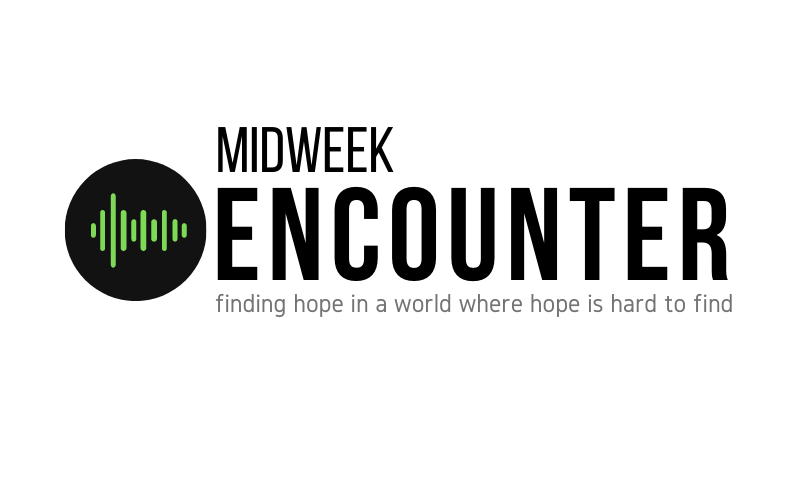
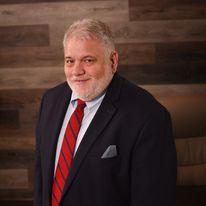


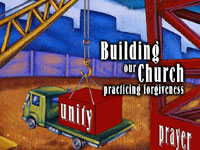 On life’s journey we all face crossroads. Jacquie deKroon’s major crossroads came at age 15. Sometime during the wintry night of January 25, 1987, she woke, vaguely aware of a flicker of light smoke and an unusual sensation heat in her room. Completely dazed, with warm blood dripping from her face, she staggered and crawled towards her bedroom door, down the hall through the heat and flames and out the front door; escaping with only her life. Listen to her own words:
On life’s journey we all face crossroads. Jacquie deKroon’s major crossroads came at age 15. Sometime during the wintry night of January 25, 1987, she woke, vaguely aware of a flicker of light smoke and an unusual sensation heat in her room. Completely dazed, with warm blood dripping from her face, she staggered and crawled towards her bedroom door, down the hall through the heat and flames and out the front door; escaping with only her life. Listen to her own words: 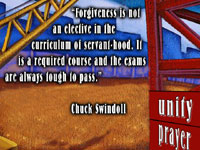 Chuck Swindoll said it best: “Forgiveness is not an elective in the curriculum of servant-hood. It is a required course and the exams are always tough to pass.”
Chuck Swindoll said it best: “Forgiveness is not an elective in the curriculum of servant-hood. It is a required course and the exams are always tough to pass.”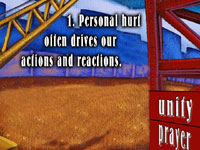 1. Personal hurt often drives our actions and reactions.
1. Personal hurt often drives our actions and reactions.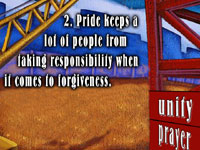 2. Pride keeps a lot of people from taking responsibility when it comes to forgiveness.
2. Pride keeps a lot of people from taking responsibility when it comes to forgiveness.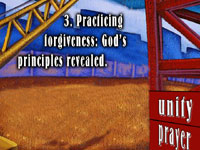 3. Practicing forgiveness: God’s principles revealed.
3. Practicing forgiveness: God’s principles revealed.